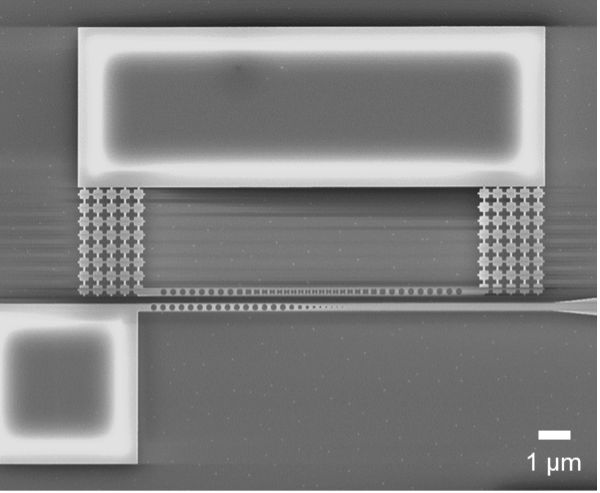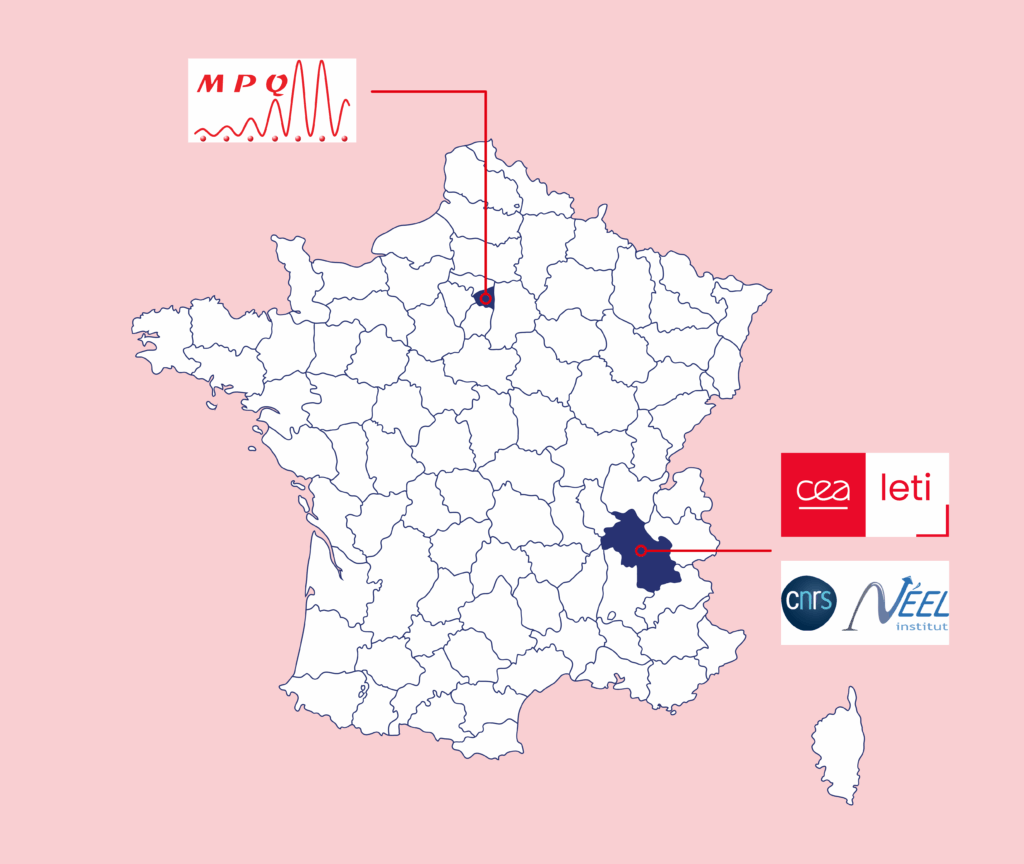
QuMOMI
Quantum Microwave-Optics Mechanical Interface
Project managers
Bruno Fain, CEA
Guillaume Jourdan, CEA
Overview
The QUMOMI project aims to develop in France a quantum interface between microwaves and infrared optics, meeting the required standards for future advancements in quantum technology.
Keywords: Quantum interconnect, Quantum interface, Optomechanics, Electromechanics, Signal Converter, Quantum networks
In a nutshell
Beyond the first prospects for optical control of microwave qubits and long-distance optical transfer of microwave quantum information, QuMOMI technology will enable the optical entanglement of two distant microwave qubits. These results will facilitate the scale-up and connectivity of quantum computing architectures, by opening up an interface between microwave qubits and silicon photonics.
When it comes to quantum information, inefficient conversion can result in classical statistical mixing. High efficiency, low added noise, good understanding and control of thermal effects are essential to develop a converter that correctly processes quantum information. These aspects will be addressed in detail in QuMOMI, to demonstrate efficient microwave-optical conversion of quantum information and optically generate entanglement between distant microwave quantum nodes.
Although the devices that will be used in quantum computing in the future are not known at this stage, we believe that the QuMOMI interface will be key to overcoming many of the challenges in the field of quantum technologies, by naturally bridging ongoing developments in quantum photonics and quantum microwaves, on a silicon platform compatible with large-scale integration.
Challenges
- Integration of superconducting material in a MEMS manufacturing flow using VLSI technology.
- Integration and structuring of piezo material for GHz devices
Tasks
- WP0: Project management
- WP1: Development of silicon converters
- WP2: Development of Al(Sc)N-based devices
- WP3: Development of lithium niobate device
- WP4: Microwave/optical conversion
Consortium
- CEA-Leti, Grenoble
- Institut Néel (CNRS)
- Laboratoire Matériaux et Phénomènes Quantiques (MPQ, CNRS / Université Paris Cité)
